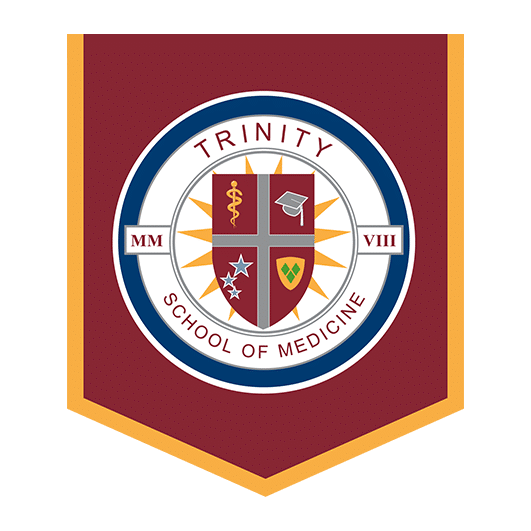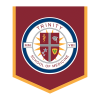Trinity School of Medicine has always prided itself on the strength and ambition of its students. So many future physicians come our way looking for something new; whether that’s a unique learning environment built on support and a strong relationship with the faculty, a curriculum with an emphasis on clinical skills and service to patients, or just a fresh start. In this next edition of our alumni spotlight, meet Dr. Sophie Waterman, Trinity graduate and family medicine resident in British Columbia, Canada.
What brought you to medicine?
I come from a medical family. My father is a neurologist, so the sciences were just a general direction for me to head in at first. I’d earned a degree in chemistry, but I also graduated at a time where Canada restricted funding for science, so I couldn’t get a job anywhere. I did some traveling, and ended up in a tiny rural town called Tofino. It’s on the coast of western Canada, and I worked as a secretary in a medical office. I primarily worked with the First Nations people who were only a float plane ride away. I guess I’d already started on the path to medicine via my academic work, but it wasn’t until I was with those family physicians on the west coast that it clicked for me. I was drawn to that; the value of making bridges where they wouldn’t otherwise exist, and decided to apply.
What made you pick Trinity School of Medicine?
By the time I’d come to the decision to go to medical school, I was older. I was 24, and Canada is pretty competitive. I thought I was a good candidate, because it was also the summer, even if I’d gotten in on my first try, I would have been 26 when I started because the app cycle was so long. Trinity would have had me graduating much, much sooner, looked into options in the Caribbean and landed on Trinity.
My admissions interview was with Dr. Wilson (ed. note: Dr. Paula Dessauer Wilson is Trinity’s senior associate dean of clinical clerkships). She has remained a strong influence on my life and has become an amazing mentor. I felt a real kinship with her.
Congratulations on Matching into British Columbia. It’s one of the most competitive provinces.
It’s funny, Dr. Wilson is the one that actually told me that I’d matched. I’d received a notification but I hadn’t checked. I was too nervous. She called me and just said, “We’re going to be neighbors!” (ed. note, Dr. Wilson is based out of the Pacific Northwest of the United States, and, as noted, Dr. Waterman matched into a residency in British Columbia).
What was life like on St. Vincent?
That’s a huge, huge question. It was life-changing and so hard to answer. I’ll try, though.
It’s a really beautiful place, and if you’re interested in tropical medicine, you’ll see things you’ll never see again. I participated in the World Pediatric Project when I was there. I advocated for myself to get more access to clinical work. This lead to my first successful diagnosis (of course, a doctor had already made the formal diagnosis, but I didn’t know what it was, and I asked to work through symptoms and progression). It was rheumatic fever with a very clear, newly developed heart murmur. Nothing you see here [in the US or Canada], and if something like it does present, there’d be a group of residents ahead of you to get that same experience. I feel that put me in pretty good stead with the kind of community-based, need-based medicine I wanted to practice.
I also have to admit, I surfed every day. It was very helpful for me. Meditative. Some days, it was just paddling, but for 8 months a year, there’s a nice, surfable wave off St. Vincent.
You went to Sierra Leone, didn’t you?
Yes. I worked with The Village Medical Project for Sierra Leone. It was an elective rotation I undertook and organized myself.
The Project is the brainchild of Professor Aiah Gbakima, one of the most unusual and compelling human beings on Earth. He was raised in Bunabu, a remote village in the Gorama chiefdom in the Kono District of Sierra Leone. It’s part of the world that has experienced every human indecency you can imagine; it was the center of slavery, then the RUF rebel fighters under Charles Taylor, the exploitation of people and diamonds, and most recently, the Ebola outbreak in 2014. The people have been through so much.
Aiah was raised there, and through his own intelligence and heart, he got through his early education, was sponsored to do more schooling in Freetown, and made his way to North Carolina in the US. He has two PhDs, one from Johns Hopkins. He went home again to help. With an eye for his expertise in microbiology, he brought medical care to his village, his people.
I lived with Aiah in Bunabu for 20 days, and worked long, 14-16 hour days. We provided medical care for maternity cases and under-sized development cases. A major focus of the project is also on reducing the malaria burden. It’s an amazing undertaking and a testament to consistent care and long-term epidemiology. The project has operated in the same area every year for the past decade (only pausing during the Ebola outbreak due to access restrictions) and is able to chart progress. This, on its own, is valuable, but in the case of the specific work, the agility of the program allows for change based on that data if something isn’t effective. The Village Medical Project has also built up a lot of trusts, which has been a long process. It’s helped a population come to understand how western medicine works, and how, for example, a neighbor having more medicine isn’t better. The community has learned that it’s not about resource accumulation as a metric for care, it’s about need. If someone has more medicine, it means they need more, something is wrong. We’ve also sponsored a local woman who is a nurse practitioner, now. She runs the hospital there, and another is training up starting next year. It’s incredible seeing first-hand what happens when there’s little-to-no access to primary care, and then it’s introduced to a population.
We asked and Dr. Waterman agreed to let us plug the donation drive for the project. If you’d like to support Dr. Gbakima and the Village Medical Project for Sierra Leone, you can click the button below. It’s registered in both the US and Canada and is tax deductible.
{{cta(‘fe98e8ba-645a-4d4a-b211-cb5fb27a58b2′,’justifycenter’)}}Back on Trinity: Do you have any advice for students considering the school?
I remember deciding to go into medicine and people being discouraging, even resentful. You’re in it, and you don’t want someone to discourage you in the thick of it, so that can be hard. Keep going, though. It’ll be worth it if you stay focused and do the work. Going the route I did, you have to be more sure, and that’s a good place to know if you’re sure or not (when discouraged). Also, figure out how you define yourself as a doctor in order to get the residency that you want. This is a personal presentation, but also choosing electives, where to apply, behavior, focus, etc. Knowing what kind of doctor you want to be is up to you, you do it on your own. Ultimately, though: don’t sweat the small stuff. If things do not appear to be going to plan, they will keep focused, and keep moving. You have to go “island time” on some things. The Canadian examination and match process changes each year, so keep vigilant on that.
Thank you so much for your time, Dr. Waterman! Once again, the link to donate to the Village Medical Project for Sierra Leone can be found here.

